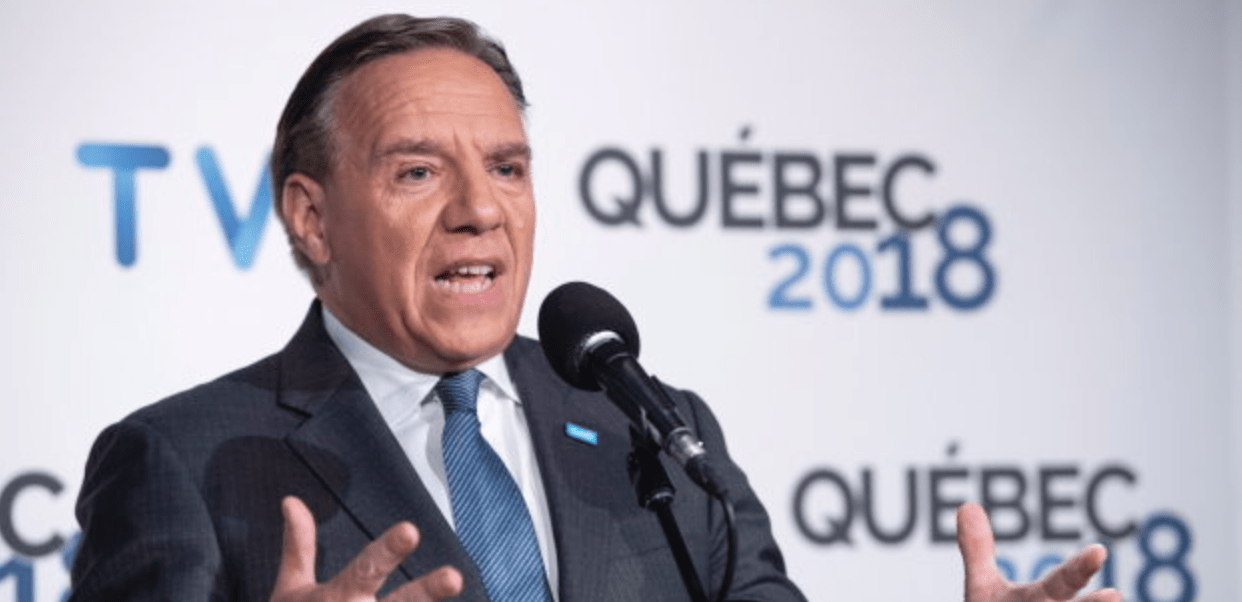And so ends the depraved Faith Goldy campaign for Mayor of Toronto, and yet another sustained right-wing backfire draws to a close.
Conservative media has doused itself with a fresh coating of lighter fluid and set itself on fire yet again, because it's been, what, a whole few months since that last happened? What passes for the movement is facing fresh side-eyes from everyone else for insufficiently denouncing her. Federal Liberals are updating their spiderweb charts on walls, drawing ever-thickening lines between her and her enablers and Andrew Scheer and his staff.
You would hope that the light bulb would be flickering to life over the heads of at least some of the influencers and opinion leaders who are allegedly in charge of directing the opposition to Trudeau by this point, and that they would be finding ways to prevent spectacles such as what we've had to endure from the odious Ms. Goldy over the last too-long while. You would hope they would look at her results after going full social media barnstorm and, using that FISCALLY CONSERVATIVE SOUND MONEY MANAGERS cred they give themselves, conclude that her sparkling 3% vote share was an abysmally poor rate of return on any investment, and be a bit more cautious with how they spend the social capital of each and every conservative in this country.
Yet it was apparent, in the endless winking at her, the excuses proffered for her behaviour, and in the testimonials that she was never this bad when she worked for Sun News, that whatever the mainstream thought of her hugely damaging write-off of a campaign privately, they sure weren't going to burn any bridges calling her out publicly because, don't you know, we're going to all need to be rowing our song sheets to the beat of the same drummer come 2019, or something.
There was a time, not so long ago, when I was wont to view Ms. Goldy with bemused contempt, and the campaign to silence her for fear of giving her oxygen in a similar way. No longer, and I expect others feel the same way. Through their own actions, these chuckleheaded wannabe populists who don't even have the courtesy to put an actual movement and organization behind them and instead believe that a tornado of "voter discontent" and their own hyperventilations on Twitter will land them in a better place from whence they started.
But you see, this is the root of the problem. Faith Goldy's delusions of importing a true 'We The People' campaign into Canada was what undid her. She believed that she could change the way things were done in this country without the explicit imprimatur of the mainstream party and local powerbrokers, which is what Doug Ford was canny enough to do. Ford realizes that we inhabit a banana republic, where ancient families collude to exclude those with much more legitimate grievances than Faith could ever pretend to.
The day to day happenings in this country are indeed bananas (B-A-N-A-N-A-S!) and where such maddening fruits are not even allowed to ripen properly and be enjoyed ironically, for as the old commercial tells us, bananas don't do very well in a refrigerator-like environment. That we are nevertheless a frozen banana republic is an eminently reasonable conclusion to be drawing from such dispiriting results as the election of Patrick Brown as Mayor of Brampton on the strength of an endorsement from the deathless Bill Davis, and the re-election of Tory himself on an utterly cynical program of promising all things to all people and allowing his handlers and young partisans to put their bodies and livelihoods in between him and all and any controversy.
So-called "true" conservatives, unable to accept this admittedly disgusting state of affairs and swallow candidates like John Tory or Scheer's feckless embrace of the dairy lobby, go so far as to embrace the likes of Francois Legault without understanding the first thing about what he represents or even the political context that shaped him. But in throwing themselves at anything that looks even slightly like their ideals, they are the ones who are betraying their principles, and will wind up far more disappointed that any toe-r of the party line.
Photo Credit: Twitter
Written by Josh Lieblein










